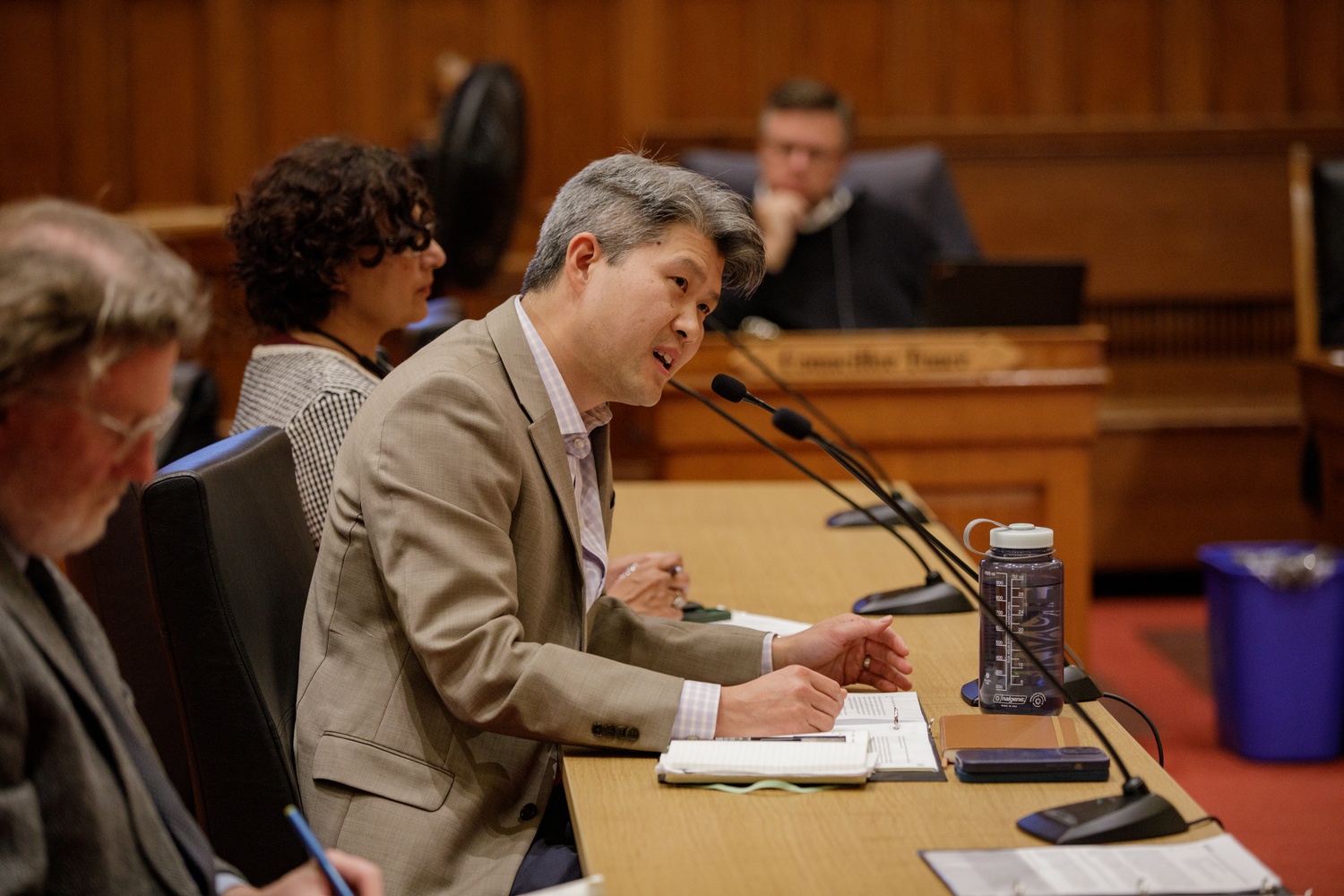
News
Harvard Grad Union Agrees To Bargain Without Ground Rules

News
Harvard Chabad Petitions to Change City Zoning Laws

News
Kestenbaum Files Opposition to Harvard’s Request for Documents

News
Harvard Agrees to a 1-Year $6 Million PILOT Agreement With the City of Cambridge

News
HUA Election Will Feature No Referenda or Survey Questions
City Manager Huang Urges ‘Moderation of Growth’ to Address Budget Crunch

Cambridge City Manager Yi-An Huang ’05 offered a playbook for addressing the city’s unsustainable budget growth in a Friday interview with The Crimson, suggesting that the city may further raise property taxes and pare back certain city services in fiscal year 2026.
As the budget planning process has begun in earnest, officials have been reluctant to offer specific ideas for budget cuts, and Huang was no exception. Still, he indicated that city staff will be looking in particular toward municipal services, with an eye toward trimming areas where the city is spending more than it needs to.
“We’re seeking to make more choices to say, ‘Does everything have to be at the level that we’ve been delivering it at,’” Huang said.
“We’ve sort of set this expectation for everything that we do, and we have to be a little bit more moderated on saying what is good enough, and how does it impact the other choices that we get to make,” he added.
City staff and councilors have been warning of Cambridge’s growing budget for months, ever since the city approved a nearly $1 billion budget for the 2025 fiscal year. Despite the spending growth of the past several years, revenue sources have been eroding, with temporary pandemic relief funds expiring soon and commercial property tax revenue drying up.
In response to declining revenues, the Council raised residential property taxes by 7.3 percent in October, and the city projected tax increases down the road in the ballpark of 8 percent in November.
Huang left open the possibility of raising taxes further to continue funding city programs.
“Ultimately, I’m comfortable if we continue to make, and are able to make, more investments than other communities because we have the resources,” Huang said.
Huang also emphasized that Cambridge’s current tax rates “are still lower than our surrounding communities,” long a point of pride among city officials.
Huang said tax raises and a “moderation of growth” will be necessary to avoid putting valued city programs on the chopping block.
“We don’t want to be in a position where we have to ultimately go and say, ‘Oh, this great program that we rolled out, that we built, we’ve actually got to trim it or cut it,’” he said.
Huang also raised concerns about the potential that Donald Trump’s second administration could jeopardize federal funding commitments for local infrastructure projects.
“We’re thinking about where we have risk. We’re certainly looking at both existing federal grants that we have outstanding,” Huang said, “and we certainly have a little bit of exposure in terms of what might happen on the federal funding side.”
—Staff writer Benjamin Isaac can be reached at benjamin.isaac@thecrimson.com. Follow him on X @benjaminisaac_1.
—Staff writer Avani B. Rai can be reached at avani.rai@thecrimson.com. Follow her on X @avaniiiirai.
Want to keep up with breaking news? Subscribe to our email newsletter.
From Our Advertisers

Over 300+ courses at prestigious colleges and universities in the US and UK are at your disposal.

With innovative financial tools combined with financial education, Collegiate empowers students to take control of their finances and build confidence in their money management skills.

Serve as a proctor for Harvard Summer School (HSS) students, either in the Secondary School Program (SSP), General Program (GP), or Pre-College Program.

With an increasingly competitive Law School admissions process, it's important to understand what makes an applicant stand out.

Welcome to your one-stop gifting destination for men and women—it's like your neighborhood holiday shop, but way cooler.

Admit Expert is a premium MBA admissions consulting company, helping candidates secure admission to top B-schools across the globe with significant scholarships.
